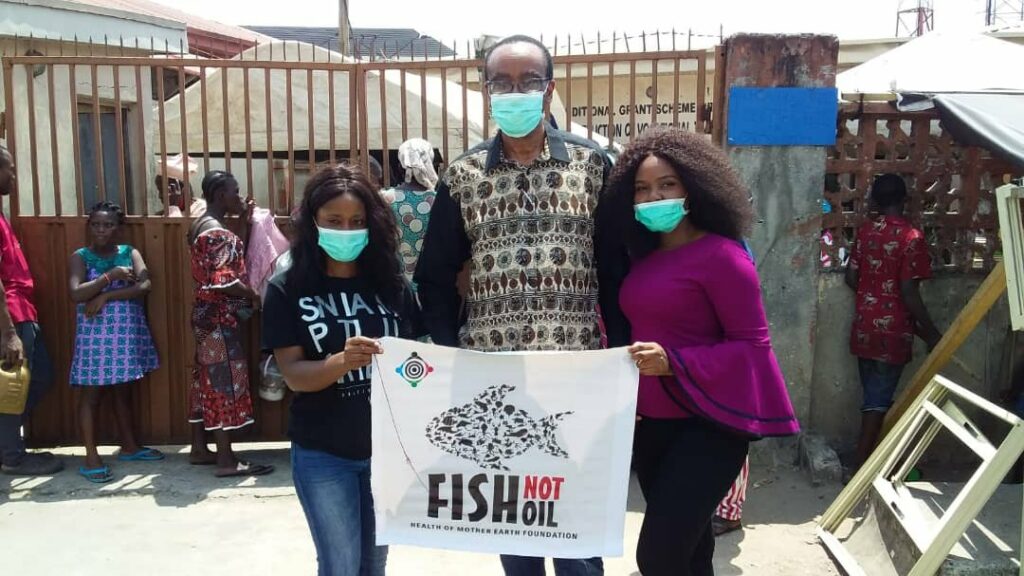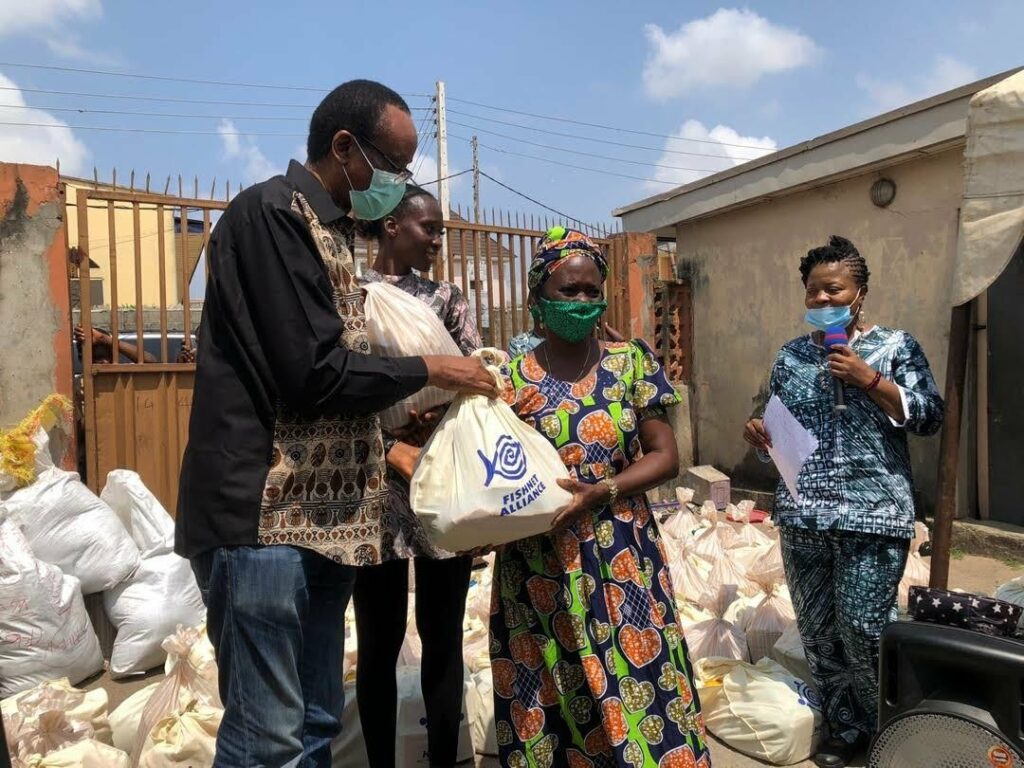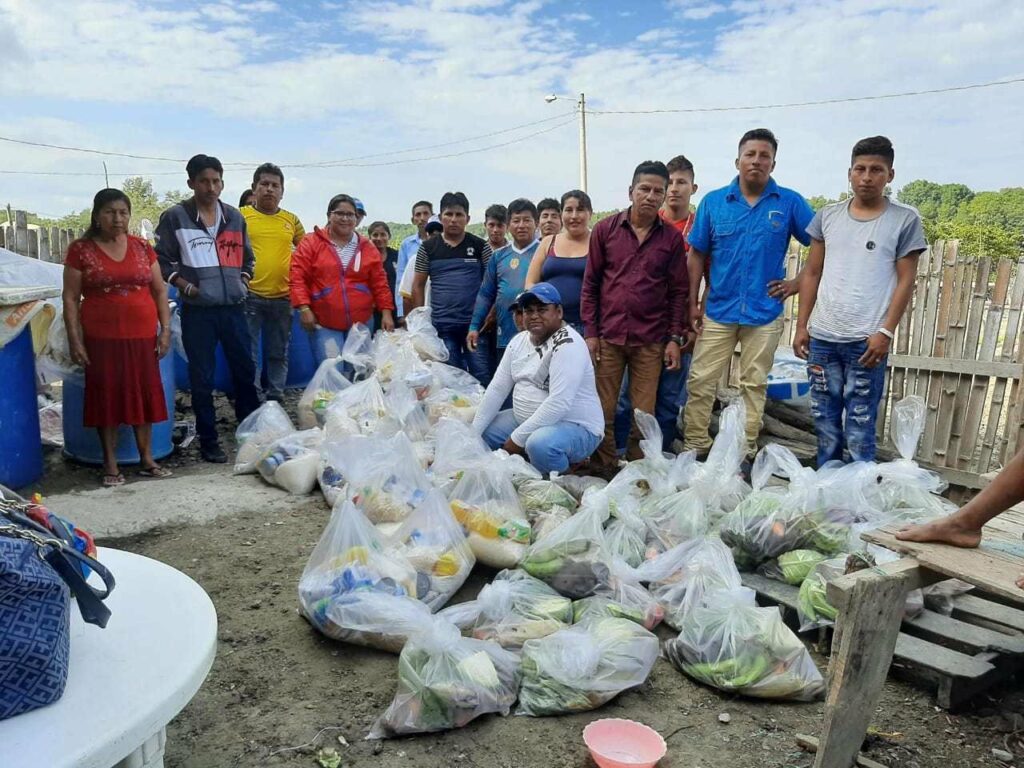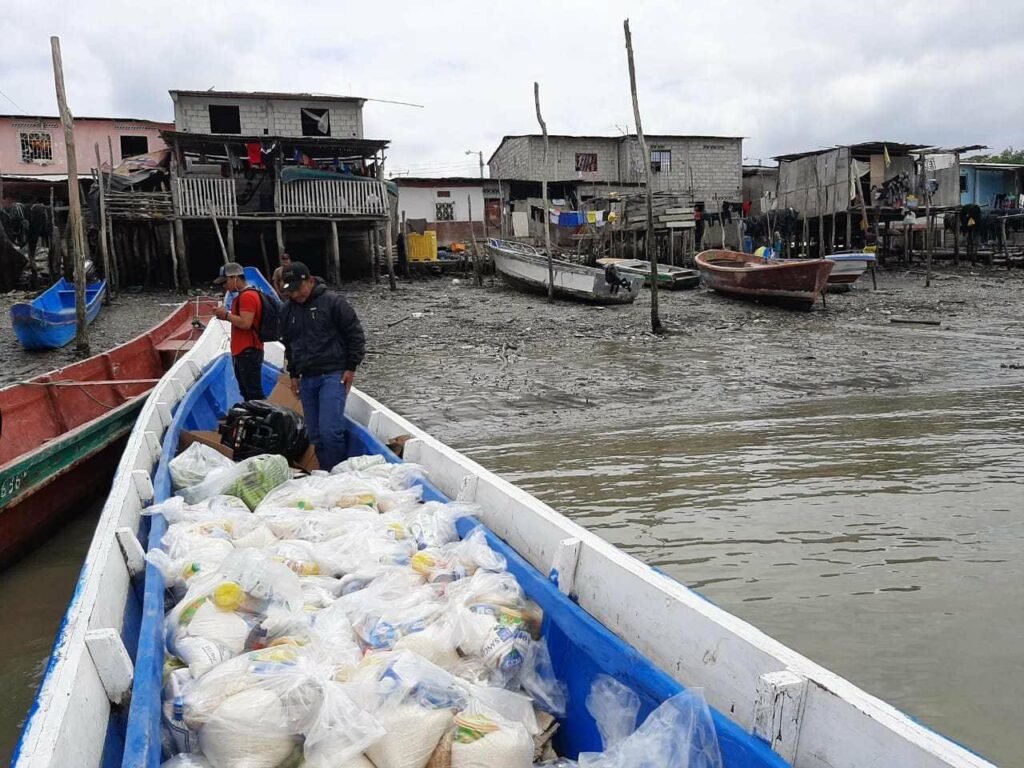In the midst of Covid-19, fishing communities around the world have demonstrated solidarity and strengthened the resilience of coastal communities.
Agroecology — the practice of producing food in sync with nature — includes within its diverse global movement peasants, Indigenous peoples, agroforesters, foragers, pastoralists, and fishers.
We cannot overlook any of these sectors’ contributions to global food security. Worldwide, around 60 million people are engaged in fishing activities; even with the rapid growth of industrialized fishing fleets in recent decades, 90% of them are employed by small-scale fisheries. Fishers provide a fifth of the animal protein consumed worldwide. (Of course, in many countries like Bangladesh, Côte d’Ivoire, Ghana, Indonesia, Philippines, Senegal, and Sri Lanka, fish accounts for nearly half of the total animal protein consumed.)
Covid-19 has brought immense hardship to fishing communities worldwide. Just as lockdown measures and movement restrictions impeded farmers’ access to their farms and territorial markets; many fishers were unable to go to sea, or sell their catch. Hunger, poverty, and food insecurity have all increased among frontline food producers around the world who depend on their livelihoods every day to feed their families.
In response to the pandemic, the Agroecology Fund supported 59 grassroots organizations across a wide range of geographies and social contexts with an emergency grant in 2020. As part of the Covid-19 Emergency Response Fund, AEF was honored to support two networks that are defending the rights of fishing communities while demonstrating the importance of artisanal fishing in building resilient and sustainable food systems.
The Fishnet Alliance
Based in Nigeria, the Fishnet Alliance advocates for the rights and recognition of fishing communities in several African countries, who in addition to the pandemic, are bearing the brunt of climate change and development impacts. In Nigeria, fishing communities face eviction threats from their traditional fishing grounds, as the commons they have long stewarded become contaminated by industrial pollutants. Their fish-stocks, a traditional source of nutrition, are fast being depleted by pollution and unsustainable over-exploitation.
The Alliance represents the interests of fisherpeople in policy spaces, emphasizing their contributions to the national economy, and also their role in the protection of marine ecosystems. As a network, the Fishnet Alliance stands in solidarity against extractive industries that are degrading the environment and depriving the artisanal fishers of their primary source of income.
With the support of AEF, the Fishnet Alliance distributed emergency food aid and fishing gear to coastal communities to allow them to continue to feed their families and restart their livelihood activities during the pandemic. In Nigeria, artisanal fishers frequently need to rent their fishing equipment, which can rapidly propel them into a cycle of loan and debt. This assistance from the Fishnet Alliance alleviated the financial burden on artisanal fishers at a time when they were facing the brunt of multiple crises.
Through sustained advocacy, the Fishnet Alliance demands that artisanal fishers be consulted on policies that impact the aquatic ecosystem and their livelihoods. Additionally, they argue that governance systems over commons should be respected and strengthened. By promoting sustainable fishing practices, the Alliance helps demonstrate how artisanal fishers contribute to strengthening food sovereignty and building a resilient food system.

The National Federation of Fishing Cooperatives of Ecuador
On every coastline, small-scale fishers face similar challenges and threats. The National Federation of Fishing Cooperatives of Ecuador (FENACOPEC) is a network that represents more than 500 fishing cooperatives and associations across the country. Similarly to their Nigerian counterparts, coastal communities in Ecuador are confronted with unfavorable policies that disadvantage them and threaten their livelihoods.

Although artisanal fishing is an important source of food for its people, significantly strengthening Ecuador’s food security, the contribution of artisanal and small-scale fisheries to the national economy is rarely recognized. And yet, industrial fisheries receive state support and subsidies, despite depleting the very resources they depend on.
With almost no access to insurance, credits or loans, small-scale fishers are forced into economic precarity, and struggle to maintain their traditional fishing practices in the face of climate change, rampant crime at sea, and the Covid-19 pandemic.
During the lockdown, FENACOPEC created an alternative online marketing platform to connect small-scale fishers to consumers even though markets were closed. They collaborated with small farmers who had produce to share so that fishing communities could access a diverse and healthy diet throughout the crisis, and made sure to reach food supplies to fishers in remote island locations.
FENACOPEC brings fishers’ concerns to the government, advocating for their rights, recognition, and for improved state support. Through their advocacy, FENACOPEC aims to demonstrate the importance of artisanal fishers, who ensure that the Ecuadorian population can access a healthy, diverse and affordable diet, while also protecting their environment at the same time.

Beyond coastal communities, fish is also an important component of nutrition and income for farmers, especially women and youth. The Eastern and Southern Africa Smale Scale Farmers Forum (ESAFF) Zambia, another AEF grantee partner, restored three fish farming ponds in the Sefula community, Mongu district, that had fallen into disuse. Their efforts helped strengthen the resilience of local communities and ensure food security even in times of crisis. The restoration was led by unemployed youth and their families, and the income from the catch generated benefited 800 people. ESAFF Zambia also provided technical training on aquaculture management to ensure the long-term sustainability and community ownership of this initiative.

Efforts like those led by ESAFF Zambia, FENACOPEC and Fishnet Alliance improve the lives of artisanal fishers and fish farmers who sustain their communities with healthy food, while preserving their coastal and inland ecosystems and revitalizing local economies. Increasing investment in agroecology will ensure that many such grassroots organizations — on land and on the coast — can scale up and out, making a more resilient and equitable food system a reality for millions more.
